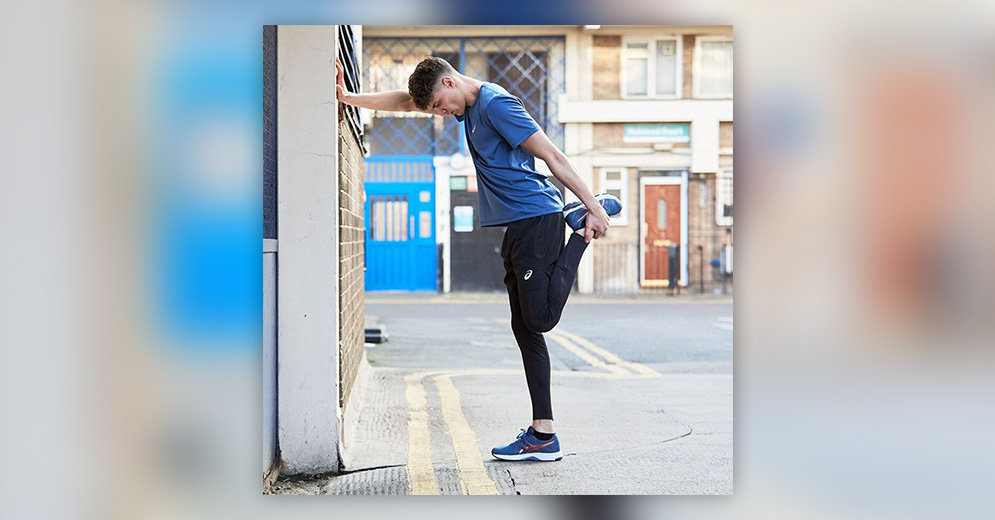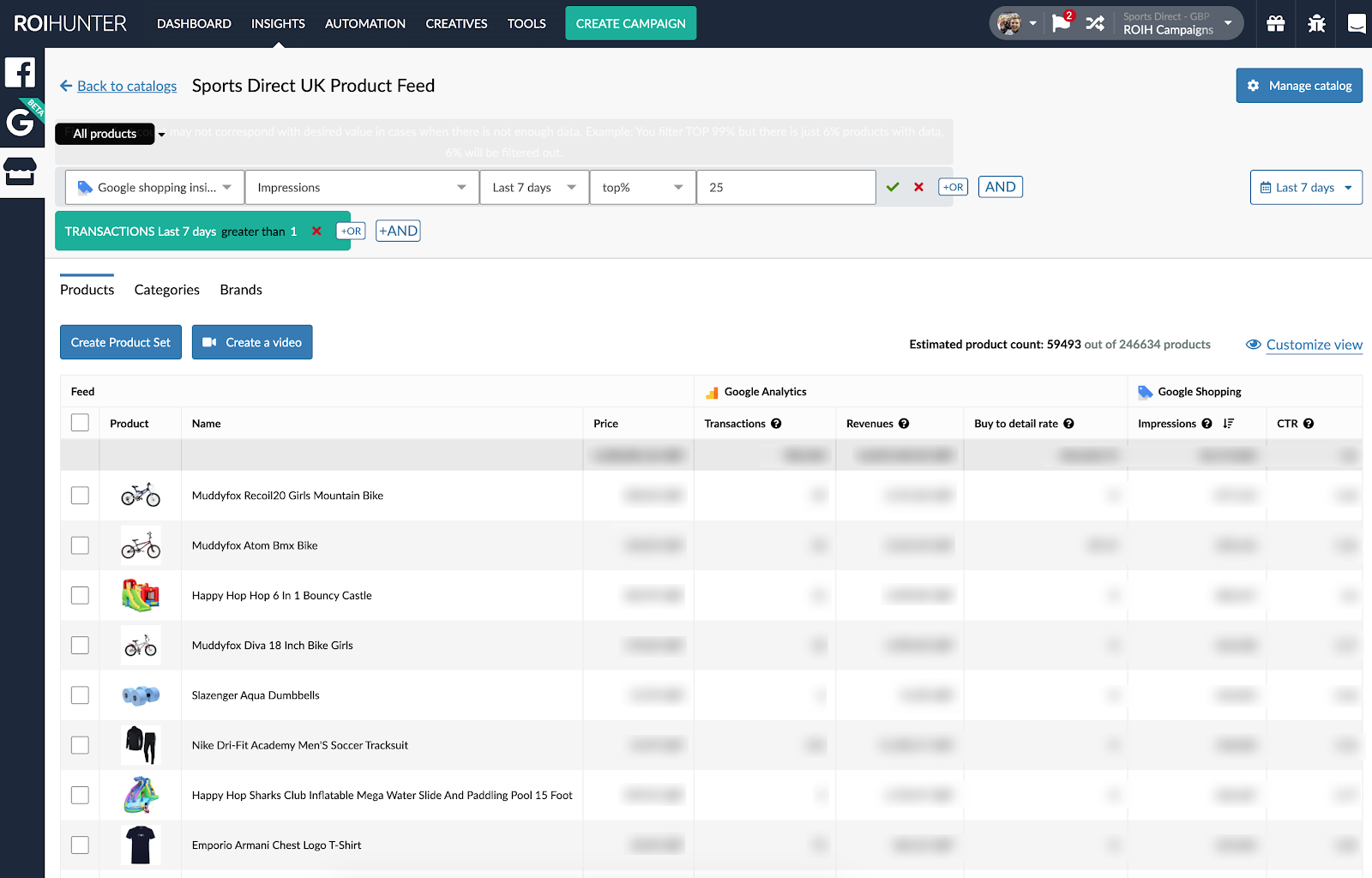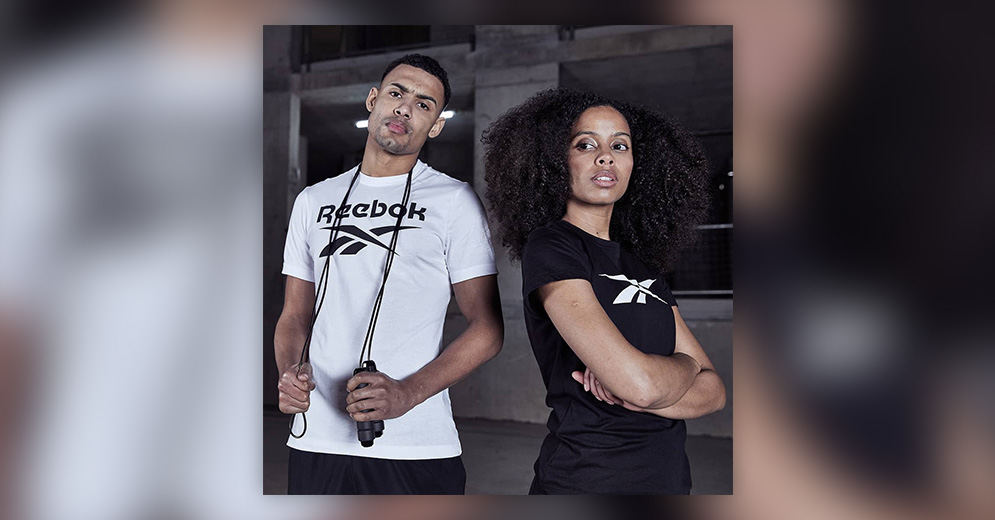challenge
SportsDirect started working with ROI Hunter back in 2018 to maximize the ROI of their campaigns. At the time, they were using microsegmentation to get their promos in front of the right eyeballs. While that strategy was showing success, it was a time-intensive headache to manually optimize so many microsegments.

solution

As the second year (2019) of the partnership began, new opportunities became available. ROI Hunter’s tech was now able to combine Google search data, Google Analytics data, Facebook data, and data from any custom source into one manageable dashboard. Product-level insights (margin, chance of return, stock levels) from each source could be integrated directly into the product catalogue. This made it possible to select products based on actual profitability, and find the best items to promote.
ROI Hunter began transitioning SportsDirect away from micro-segmentation, moving them towards a more simplified campaign structure for prospecting and retargeting. Audience optimization was left up to the Facebook Pixel, enabling them to find relevant people without needing an excess of microsegments.
Using the product-level insight now available to them, SportsDirect selected their top-performing individual products, created a product set for them, then ran a campaign specifically for that set. ROI Hunter also set the tool up to automatically find trending products within Google’s search data. These products were then immediately displayed in dynamic ads, and able to adapt to market behavior. No need to wait for the Facebook algorithm to adjust.

Using the product insights, SportsDirect was able to increase their budget and reach, while actually scaling back the number of ad sets and prospecting campaigns. They were also able to find and promote trending products with great potential.
result
The number of retargeting ad sets SportsDirect had was reduced by 80%. The number of prospecting campaigns was reduced by 70%. With these changes in place, their social media manager was finally able to stop actively managing a whole bunch of campaigns, and could instead focus on strategy, testing, experiments, and creatives for the new campaigns.
Despite the sharp reduction in the number of ad sets and campaigns, the focus on promoting best-performing and trending products paid off: not only was SportsDirect able to scale their spend by 40%, they managed to achieve a 53% increase in ROI while doing it.
